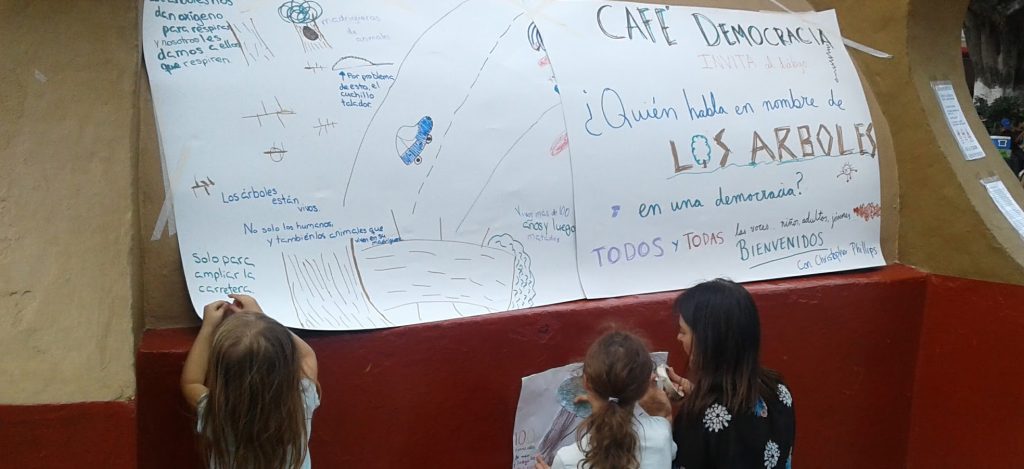We at our nonprofit are not and never will have a political agenda per se — except to create more open selves, more open societies, ones that bridges the chasms and divides between one human soul and another and prompt us to realize keenly that we’re all in this together.
At Socrates Cafes around the globe, it has been tellingly demonstrated week in and week out, for over two decades now, that people of a very wide array of political, philosophical, spiritual, religious (or lack thereof) bents feel they have a home, that they can come together and explore timely and timely questions passionately, reasonably, thoughtfully. They defy easy labels, in this age when most are all too willing to one-dimensionally caricature those who do not see things the way they do.
If you attended a typical Socrates Cafe gathering, you’d see what I characterized in Socrates In Love as something of a love-in; you’d see for yourself the uplifting, improbable friendships that form among ‘odd couples’ — people who see things differently more often than not, but who see one another nonetheless as kindred spirits, insatiable questioners, works in progress trying to make the most of their mortal moment.
It’s something to behold. Those attending don’t just transcend ‘difference,’ they celebrate certain kinds of difference, and strive to forge uncommon common ground, recognizing that no one has a monopoly on truths and on the most correct course of action for problem solving. Oh, and after the formal gathering is over? They don’t want to bid adieu to one another; so they go to another venue quite often to get a bite to eat together and continue their budding friendships and fellowships and inquiries.
They not only give one another the benefit of the doubt, but go an important step further; they trust one another, even as they differ. And they recognize that no one person, no one President, regardless of his political affiliation, strengths, glaring inadequacies, should ever be the primary focal point or conduit for channeling our higher aspirations, much less the scapegoat for the problems we believe ail us. instead, they look in the mirror and ask themselves how they might be culpable, then go the next positive step and ask how they might be capable of bringing about the change they want to see in the world at large.
And there’s this: We give one another the benefit of the doubt. We don’t assume the worst in folks. We assume, rather, that each and everyone involved is operating from a position of sincerity — and they have a singular opportunity to reveal their unique story, how they came to the view that they have, as it relates to the question being explored.
Oh, and we have a genuine method of inquiry, rather than constricting and awkward protocol, that allows for the discovery of the novel and unfamiliar, both in our inner cosmos and the outer world. A method that not only makes it possible, but requisite, to subject any given way of seeing things to scrutiny. In this way, participants are likely to discovery that there’s no one totally right or best way, but that all perspectives have elements have rightness and wrongness to them. And that is all to the good – inspires us to distance ourselves from black and white thinking, and think instead in a dazzling way of colors — like it is the first nature of children and youth to do.

